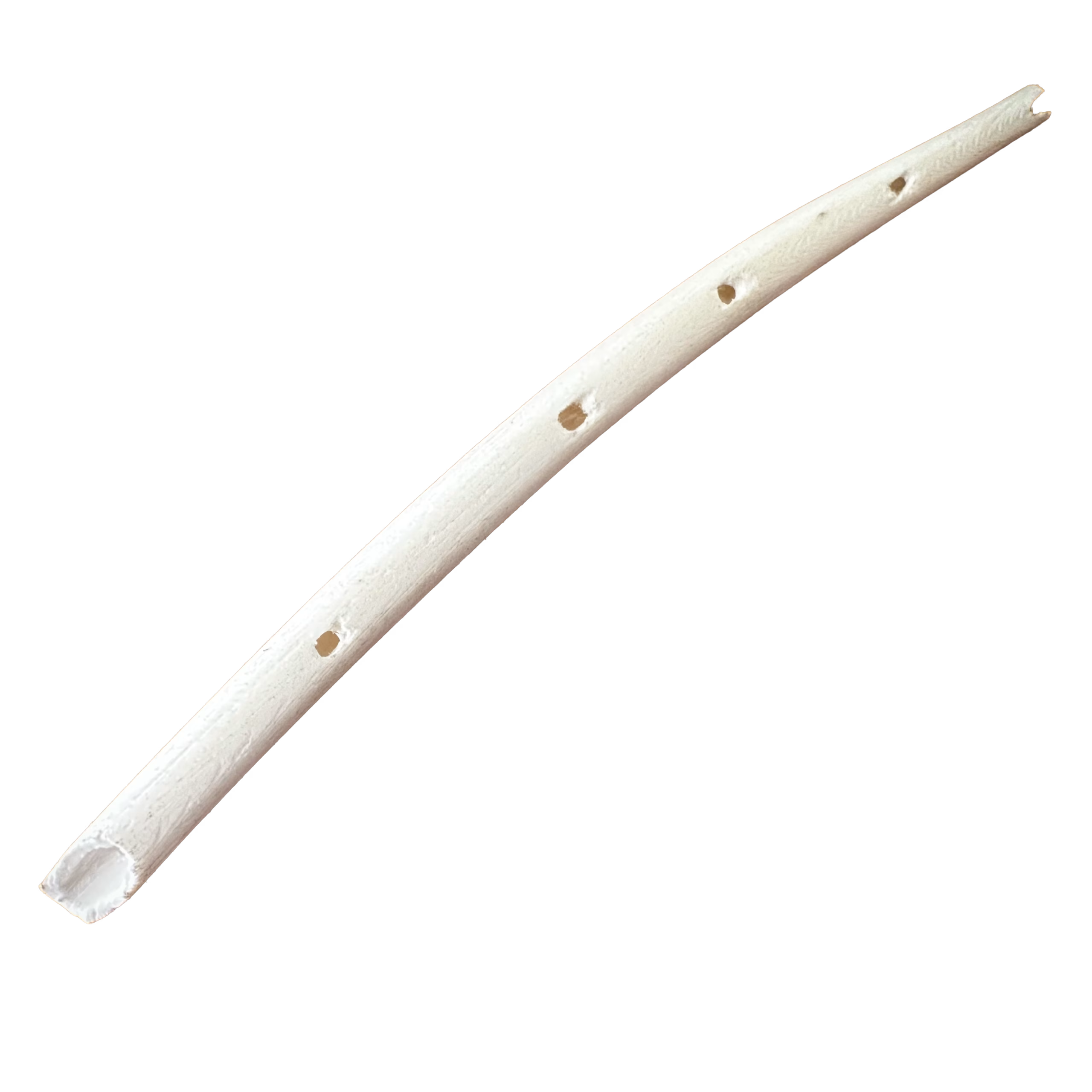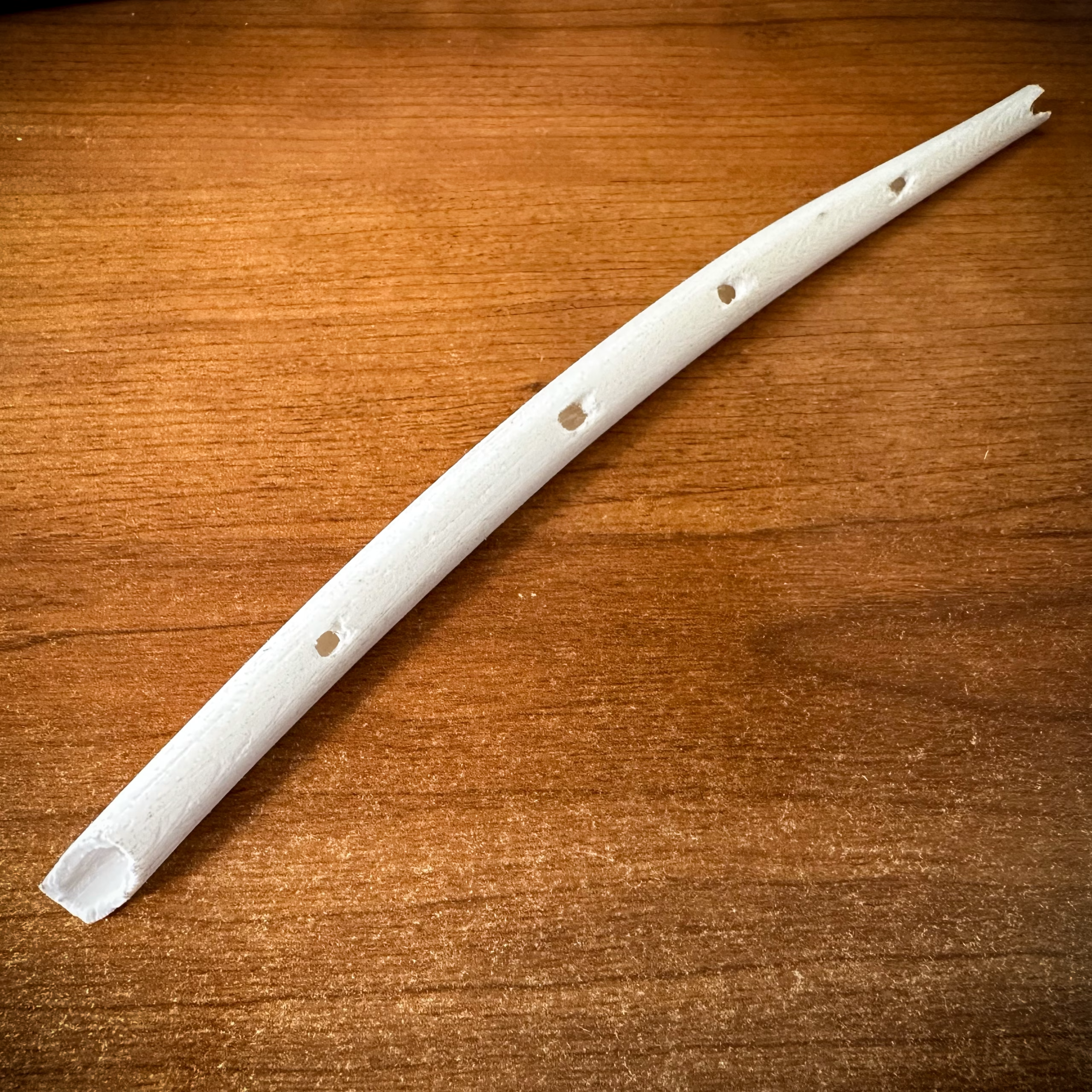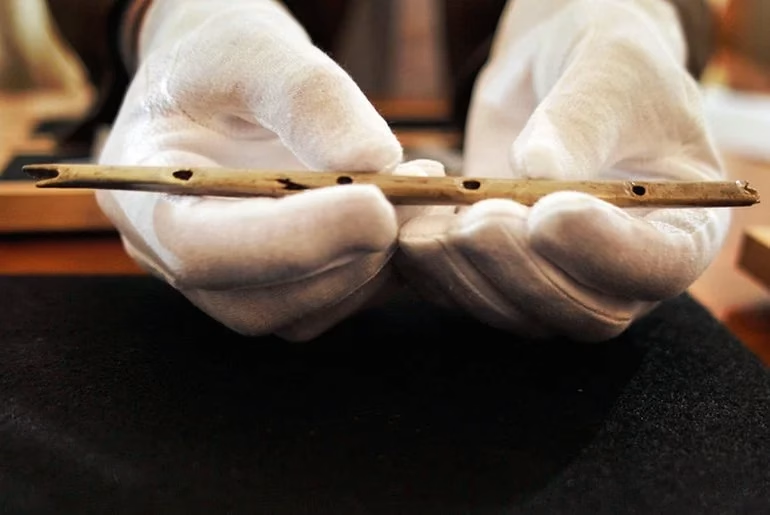
A Tribute to the
Dawn of Art.
Discovered in 2008 in a German cave, the original artifact was carved from the radius bone of a Griffon vulture. We have created a visual and tactile homage to this ancient technology.
-
Experimental Archaeology: Modeled from images of the original findings. A raw, authentic-feeling reconstruction.
-
Durable PETG Polymer: Simulates the look of bone but withstands travel and handling.
-
Acoustic Challenge: This is a challenging, rim-blown design. Can you unlock the sounds of the Stone Age?
The Ultimate Conversation Piece
"Perfect for your altar, classroom, or history collection."
Note: This is an "Experimental" replica. It is extremely difficult to play and is intended primarily for display and historical appreciation.

"They look just like the pictures of the originals, very nice! Can't wait to show my music students!"

Erika
Verified Etsy Buyer

The original bone artifact (University of Tübingen)
Why Replicate It?
The original artifact is too fragile to be touched, let alone played. By using 3D modeling and polymer printing, we allow you to hold a piece of history that was lost for millennia.
This isn't just a souvenir. It is a physical connection to the moment humans became artists.
Technical Specs

Explore the Neanderthal Flute
Complete the timeline. Check out our Divje Babe replica (60,000 years old).
View CollectionFrequently Asked Questions
Can I play it? (Please Read)
This is primarily a historical reconstruction. While some professional players may be able to coax sound from it, it is a "rim-blown" design that is notoriously difficult.
We sell this as an "Acoustic Experiment" for history enthusiasts, rather than a guaranteed musical instrument. We recommend treating it as a display piece that connects you to the past.
How do I clean it?
The PETG polymer is water-resistant. You can rinse the windway with lukewarm water and let it air dry. Avoid leaving it in hot cars.
When will it ship?
We ship from Long Beach, CA. Orders typically ship within 24-48 hours via USPS.
